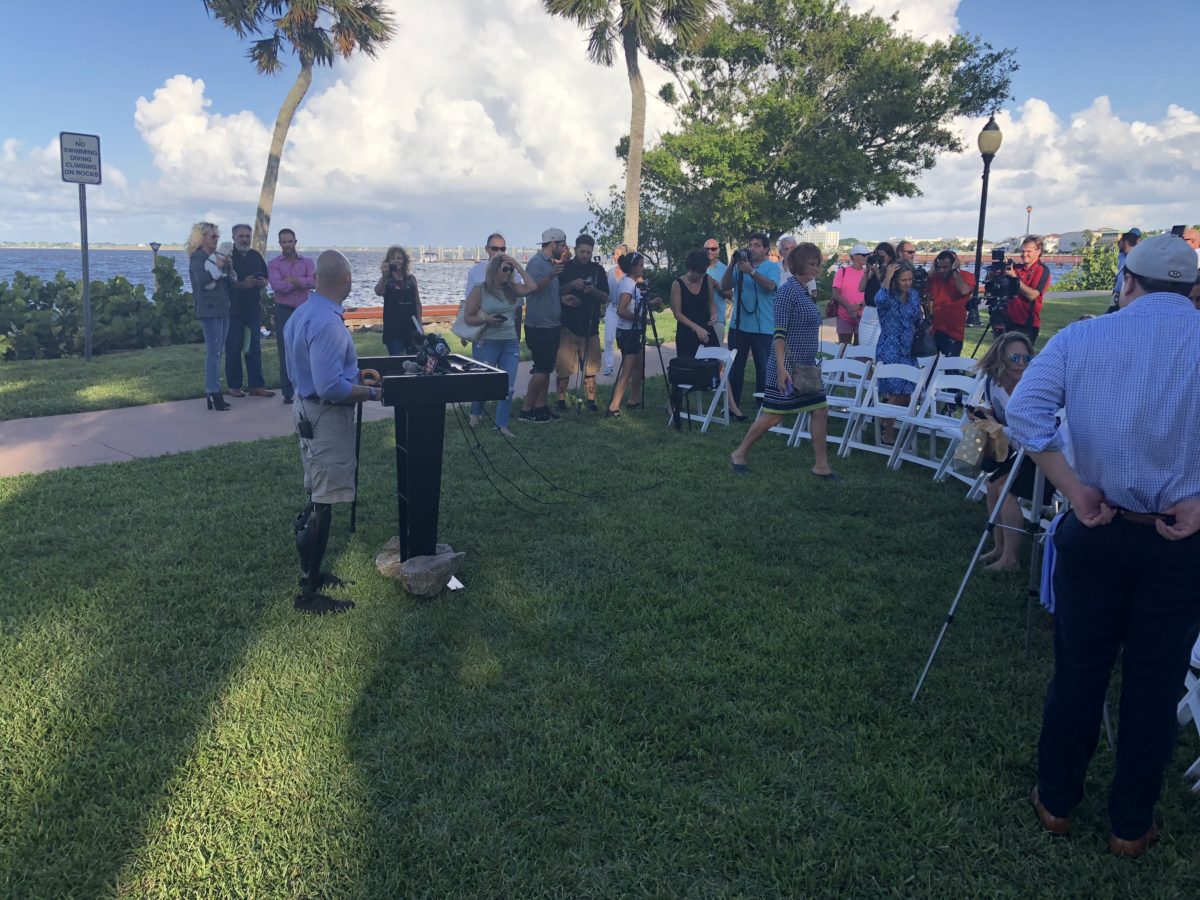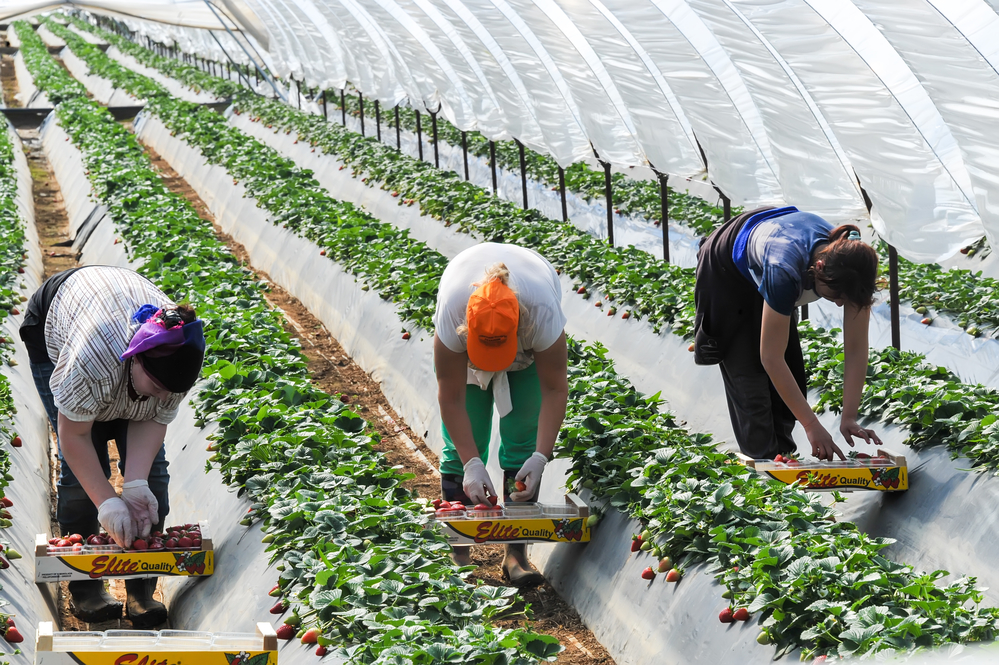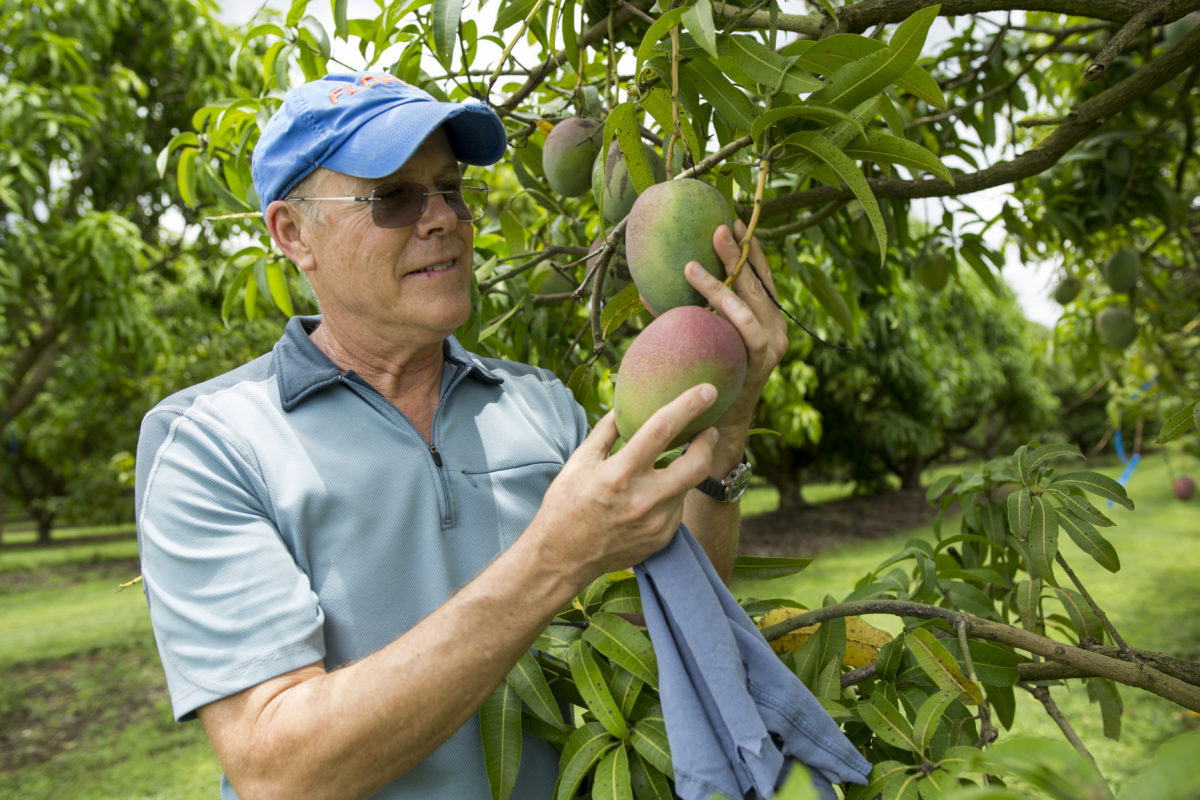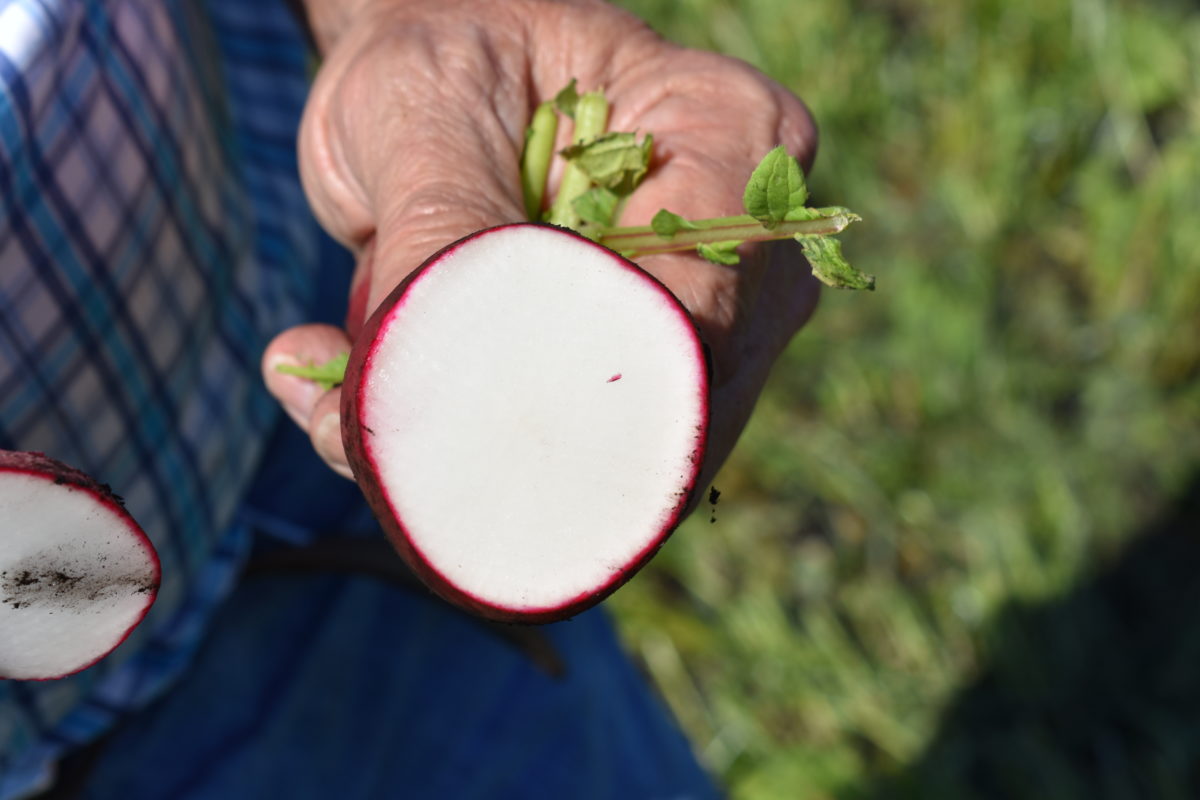A recent southeast Florida algae rally drew a small crowd. By Gary Cooper U.S. Congressman Brian Mast (R-Palm City) hosted a campaign event in Stuart on Sunday and visited other South Florida areas in recent days. He partnered with anti-farming group BullSugar.org and featured activist Erin Brockovich to help push his recently introduced Stop Harmful Discharges Act in Congress. The …
UF Researcher to Study Migration Trends, Health of Emerging Farm Workers
As the University of Florida IFAS Extension director for Hendry County, Gene McAvoy has seen firsthand a sea change in the types of workers now coming to the United States to work on farms. “It used to be 95 percent or more of the workers were from Mexico,” McAvoy said. “Now, it’s about 50 percent from Haiti and the Caribbean. …
UF Researchers Seek to Develop Tastier Mangos
Mangos make for a tasty, nutritious snack or side dish. To help meet consumer demand for more flavorful mangos without grit or fibrous flesh, University of Florida (UF) scientists will try to identify superior varieties so mango producers can choose the best types of the fruit to grow in the Sunshine State. Some South Florida farmers already grow mangos, but …
Election Day Commentary: Career Politicians or Dedicated Public Servants?
By Gary Cooper, Founder/President AgNet Media Sometimes the timing of events can really make us think. Over the weekend, our nation lost one of its greatest public servants. Senator John McCain was nothing less than a statesman his entire adult life. Not once in all the recent news media coverage did I see him referred to as a “career politician.” …
UF Names Evans New Director of Tropical Research and Education Center
Edward “Gilly” Evans, a longtime agricultural economist at the University of Florida Institute of Food and Agricultural Sciences (UF/IFAS), has been named director of the UF/IFAS Tropical Research and Education Center in Homestead. Evans, who served as interim director for almost two years, has overseen the hiring of five new faculty members. The new hires bring expertise in everything from …
White House Backs Everglades Reservoir
The White House on Tuesday backed Florida’s effort to secure federal funding for a reservoir intended to move water away from Lake Okeechobee and reduce discharges that residents blame for repeated toxic algae outbreaks spreading on both coasts. The request by the U.S. Army Corps of Engineers to include funding for the roughly $1.6 billion Everglades Agricultural Area Reservoir, approved …
Citrus Expo Welcomes Vegetable and Specialty Crop Growers!
This year, AgNet Media is excited to invite vegetable and specialty crop growers to Citrus Expo, which is set to take place August 15–16 at the Lee Civic Center in North Fort Myers, Florida. AgNet Media Founder and President Gary Cooper believes this industry will feel right at home at one of the largest grower events in Florida. Since Citrus …
UF/IFAS Hopes to Grow Vanilla, Meet Consumer Demand
For dessert, how about a scoop of ice cream flavored with vanilla from Florida’s farmers? Because so many consumers enjoy vanilla, University of Florida (UF) scientists hope to help Florida farmers grow the bean. Consumers have an appetite for vanilla. The United States leads the world in imported vanilla beans, said Alan Chambers, an assistant professor of horticultural sciences at …
Celebrate Sweet Corn Harvest Season with Local Farmers
WEST PALM BEACH, FLA – Sweet corn season is in full swing in Palm Beach County’s Everglades Agricultural Area (EAA), with farmers projected to harvest 430 million ears of locally grown sweet corn by the end of May. Almost as many ears will be listening for the starting bell that inaugurates the International Federation of Competitive Eaters Corn Eating Contest at …
On Tour in the Everglades Agricultural Area
The Everglades Agricultural Area (EAA) is a unique region with a long, rich history. Last week, members of the AgNet Media team had the privilege to visit the EAA and surrounding farm areas to meet with some of the area’s key players. During the three-day tour, the team explored agricultural production systems, ranging from sugar to citrus. ROTH FARMS …


















